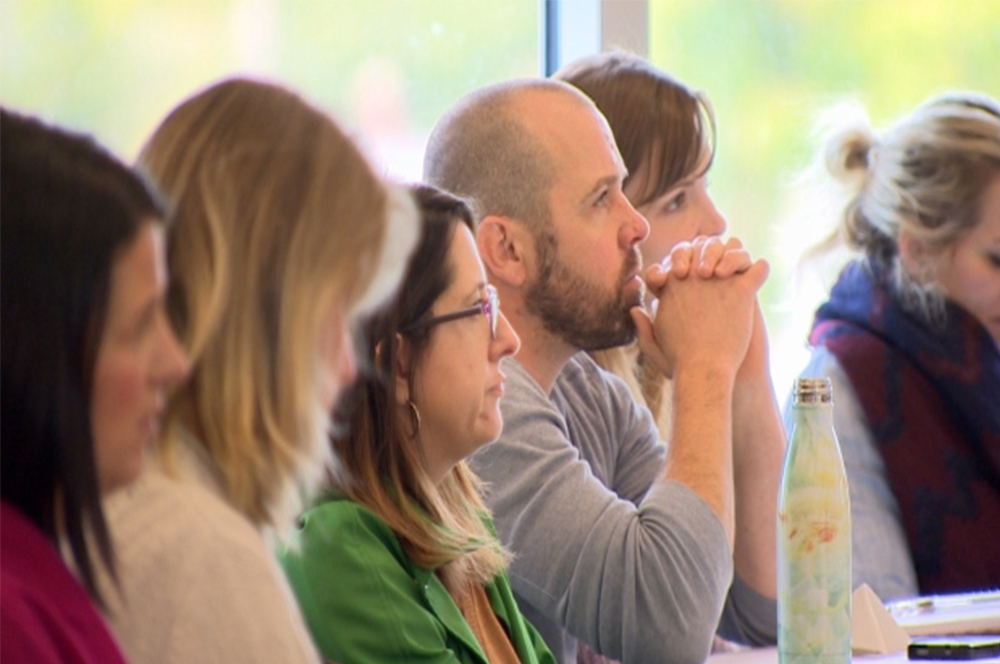Parent Chantelle Morvay-Adams knew as soon as she put her son into kindergarten that he needed extra help in the classroom.
"We knew he had differences," she said.
"I thought when we put him in the public school system, they will just give support, just like that. But it's not like that."
Her son, now 10, has five different medical conditions including autism and attention-deficit/hyperactivity disorder or ADHD.
It took moves to two other school districts before Morvay-Adams felt she was getting her son the support he needed in school.
She credits the B.C. Parents of Special Needs Children advocacy group with helping her to access resources available within the public school system.
On Saturday, the group organized a conference in Richmond, B.C., to help parents share their stories, navigate the system and advocate for their children.
The conference included workshops, lectures and health experts.
Advocating for early testing
Rick Moore was one of the keynote speakers at the conference. In 2012, he won a Supreme Court of Canada lawsuit against the North Vancouver School District.
The court ruled the district discriminated against his severely dyslexic son when it closed a diagnostic centre that helps special needs students.
"According to the School Act every child is entitled to free, public education," Moore said.
"Every child is entitled to the accommodation they need to deal with their specific learning needs."
Moore feels that the Ministry of Education is failing to take leadership on and acknowledge responsibility for students with special needs.
He said the system is currently reactive, waiting for children to show harm before providing any additional services.
Instead, he wants kids entering the public school system to be automatically tested so any special needs can be identified early and supported.
Moore said that some students wait up to two years to get diagnostic tests, which are needed to access services.
He said his own son developed migraines and suffered a drop in self-esteem while he waited to get the help he needed.
'Children are naturally inclusive'
Bobby Taylor was another presenter at the conference. She spoke as a parent of three children with special needs.
Taylor shared her successes dealing with her school district and gave tips for parents. One of them was to build a strong relationship with school officials.
She also advocates for learning from the experts — the children themselves.
"Watching children play with each other and interact with each other, they see no difference," she said.
"The children are naturally inclusive. And there's so much as adults that we can learn from that."
'We're just regular parents'
Many of the parents attending the conference said how much they appreciated connecting with others who were dealing with the same challenges.
Michelle Boshard, the parent of a 13-year-old boy with special needs, had one word to describe how she felt: "Exhausted."
"We're just regular parents trying to get though the day with our kids, and when the system doesn't meet their needs the buck stops with us," Boshard said.
Boshard said her son at times has been separated from other children at school and kept from playing outside.
She thinks there are many ways children with special needs can be included in the public school system without being a harm to other students or teachers.
"I think special needs parents are really representing the most vulnerable in our sector and anything that we do will always benefit every other child's experience in the system," she said.

